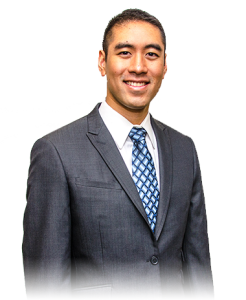Overweight? Don’t let pounds put your problems behind you
WEST ORANGE, N.J. (PRWEB) February 14, 2019
Unhealthy weight gain may be putting many problems on your back – literally. That concern is echoed by Kaliq Chang MD, of the New Jersey-based Atlantic Spine Center. He says obesity is associated with wear-and-tear on the spine, chronic lower back pain and exacerbation of other, underlying conditions, such as degeneration and herniation of spinal discs; spinal stenosis, a narrowing of the spinal canal, which causes painful pressure on nerves in the spine; and sciatica, irritation of the large nerve extending from the lower back to the legs.
“The spine plays a critical role in supporting and redistributing body weight. Carrying too much belly weight changes a person’s normal biomechanics by pushing the pelvis forward and forcing the spine to curve inward,” explains Dr. Chang, an interventional pain-management specialist. “This ‘swayback’ position places abnormal pressure on the spine and back muscles and is a likely contributor to development of neck and back pain.”
He calls obesity “one of the most serious medical conditions affecting today’s society.” It can also lead to a host of other health problems, including diabetes, heart disease, peripheral nerve damage, high blood pressure, osteoarthritis, cancer, musculoskeletal pain and, of course, back problems due to the added stress placed on spinal joints, discs, vertebrae, ligaments and tendons.
Poor posture and spinal stress, however, are not necessarily the only culprits in obesity’s link to back problems. Dr. Chang concurs with researchers who suggest that obesity also promotes an “inflammatory state” that can trigger or speed spinal disc degeneration and may play a role in compromising the flow of nutrients and oxygen along the spinal tree.
Lower back pain is the second leading cause of disability – and early retirement – globally and, in the United States, is the driver for an estimated 2.6 million visits annually to hospital emergency departments. Approximately 80 percent of the American adult population experience back pain at some point in their lives, Dr. Chang says.
Meanwhile, the percentage of Americans who are overweight or obese is reaching epidemic proportions. According to the latest statistics, the number of adults considered obese ranges as high as 38 percent in some states, with average overall rate standing at 31.3 percent. Obesity is defined as having a body mass index (BMI) of 30 or higher. BMI is a measurement of how one’s weight correlates with age, sex and height.
Recent studies – the latest reported in 2017 by University of Tokyo Hospital in Japan – have found a direct relationship between high BMI metrics and a greater rate and risk of spinal problems and back pain.
But, obesity’s role in overall health, including spinal and back health, is only part of the problem, Dr. Chang states. He refers to a study, published in the Global Spine Journal, indicating obese patients are less likely to benefit from nonsurgical treatments for back pain and spine-related issues and are more susceptible to postoperative complications, especially infection and blood clots.
“This growing population of obese patients is posing new challenges for spinal surgeons and pain-management specialists,” Dr. Chang says.
“Exercise is an important factor in weight loss, but someone with a chronically painful back may be unable to become suddenly more active without medical assistance and treatment,” Dr. Chang states.
To help patients lose weight, reduce pain and improve overall spinal health, Dr. Chang offers these tips:
- Work with a health care professional to develop a graduated exercise regimen. Even without significant weight reduction, exercise enhances overall fitness, improves cardiovascular health and decreases the inflammation that promotes lower back pain and impacts the spine.
- Incorporate walking into a daily routine and consider participating in water-based exercises like swimming. Swimming is a low-impact workout, easy on back and joints.
- Be especially conscious of posture. Sit, stand and walk erect; shoulders back.
- Change diet. Work with a nutritionist to learn what foods are healthiest.
- Stop smoking; minimize alcohol consumption.
Atlantic Spine Center is a nationally recognized leader for endoscopic spine surgery with several locations in NJ and NYC. http://www.atlanticspinecenter.com, http://www.atlanticspinecenter.nyc
Kaliq Chang, MD, is an interventional pain management specialist board-certified in anesthesiology at Atlantic Spine Center.

